
January 2023
CEO update
Welcome to this edition of In Touch.
We have been operating as Pinion Advisory for 2.5 years. This has been a foundational phase as we have integrated 4 businesses into one, implemented new internal business management systems and continued with client service delivery. Over the last 12 months our team has grown from 73 to 93. We now have offices in every state except the NT. There has been a lot going on...
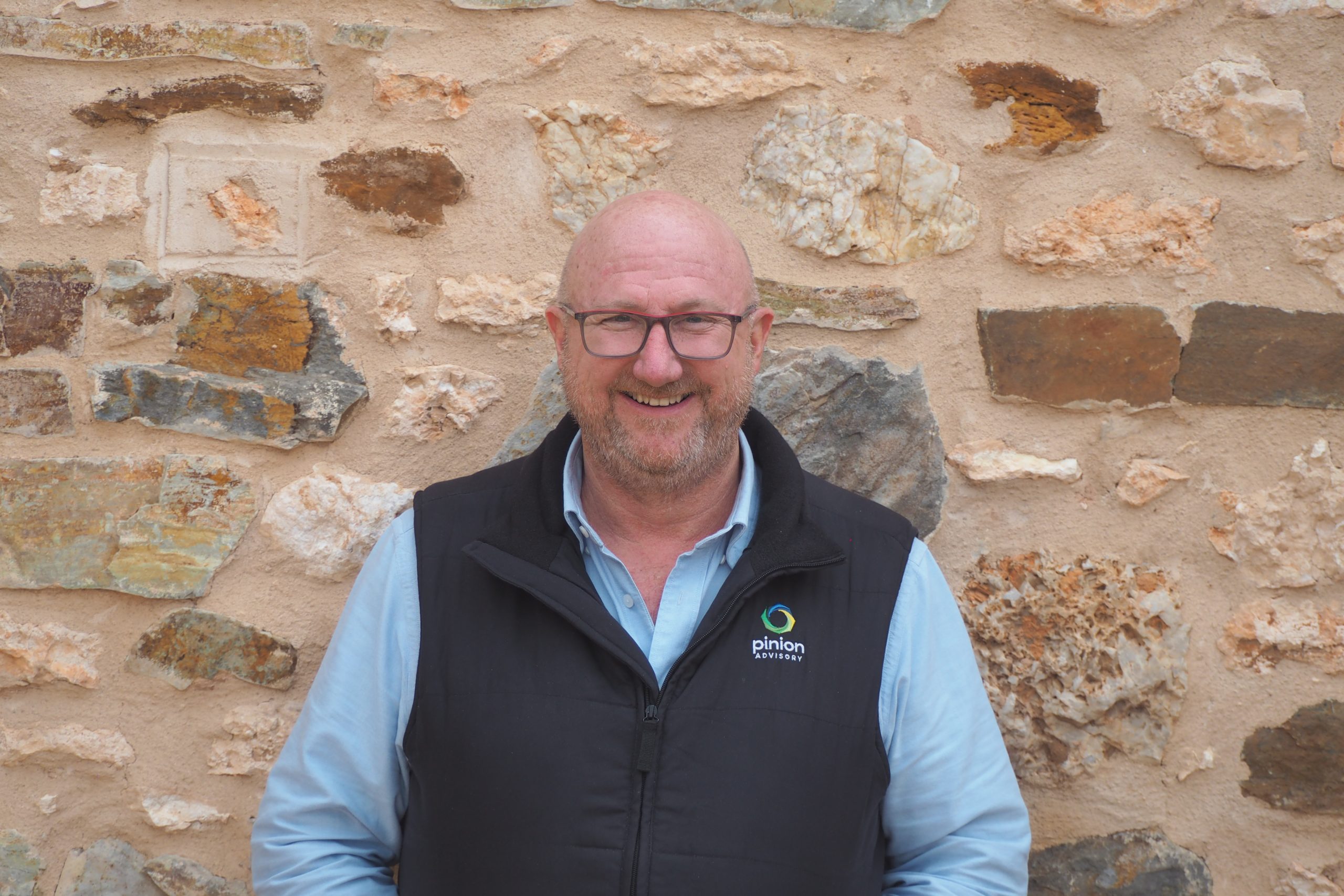
Over the last 12 months we have also launched three new services for existing clients. These include finance brokerage, sustainability strategy and people coaching. The people coaching service is designed to assist clients optimise their people management and leadership skills. There may also be times where internal conflict management requires intervention. This team is also available to assist with succession planning and the coaching of people who are experiencing transformational change. Such change could be people coming in or people leaving a farming business. In either case, specialist coaching support can assist with a seamless transition.
The finance brokerage service is natural extension of our existing services. This will enable clients to negotiate better finance outcomes with either their existing bank or a new bank. With rising interest rates, a 1% reduction in interest rates can make a huge difference to the bottom line.
The sustainability strategy team are working with clients to identify new business models or variations to existing business models that will provide an optimised sustainability outcome. This may include benchmarking the farm's carbon balance. Many emerging markets are seeking evidence around sustainability. This new service will assist clients with independent and scientifically factual advice.
I really enjoy the beginning of each year. The opportunity to review personal and business goals from the last twelve months and celebrate what has been achieved is very rewarding. Sitting down and writing some goals for 2023 always provides me focus and motivation.
Our Business “WHY” in Pinion Advisory is “Unlocking Latent Potential”. From a client’s perspective, this means we will work with you to help unlock latent potential in people, farm development opportunities, farming production systems, water projects or environmental management. If you have potential that’s untapped, please reach out. I am sure we can help unlock it.
Dave Heinjus
CEO, Pinion Advisory
Walking the talk
Carlyn Sherriff (email) and Bron Stedall (email)
Creating workplaces that people want to be part of
The agricultural industry has long experienced challenges recruiting and retaining staff. We have all heard the reasons - “people don’t want to do hard work anymore”, “people want to be paid too much”, “the industry has an image problem”, “no one wants to live out here” - the list goes on.
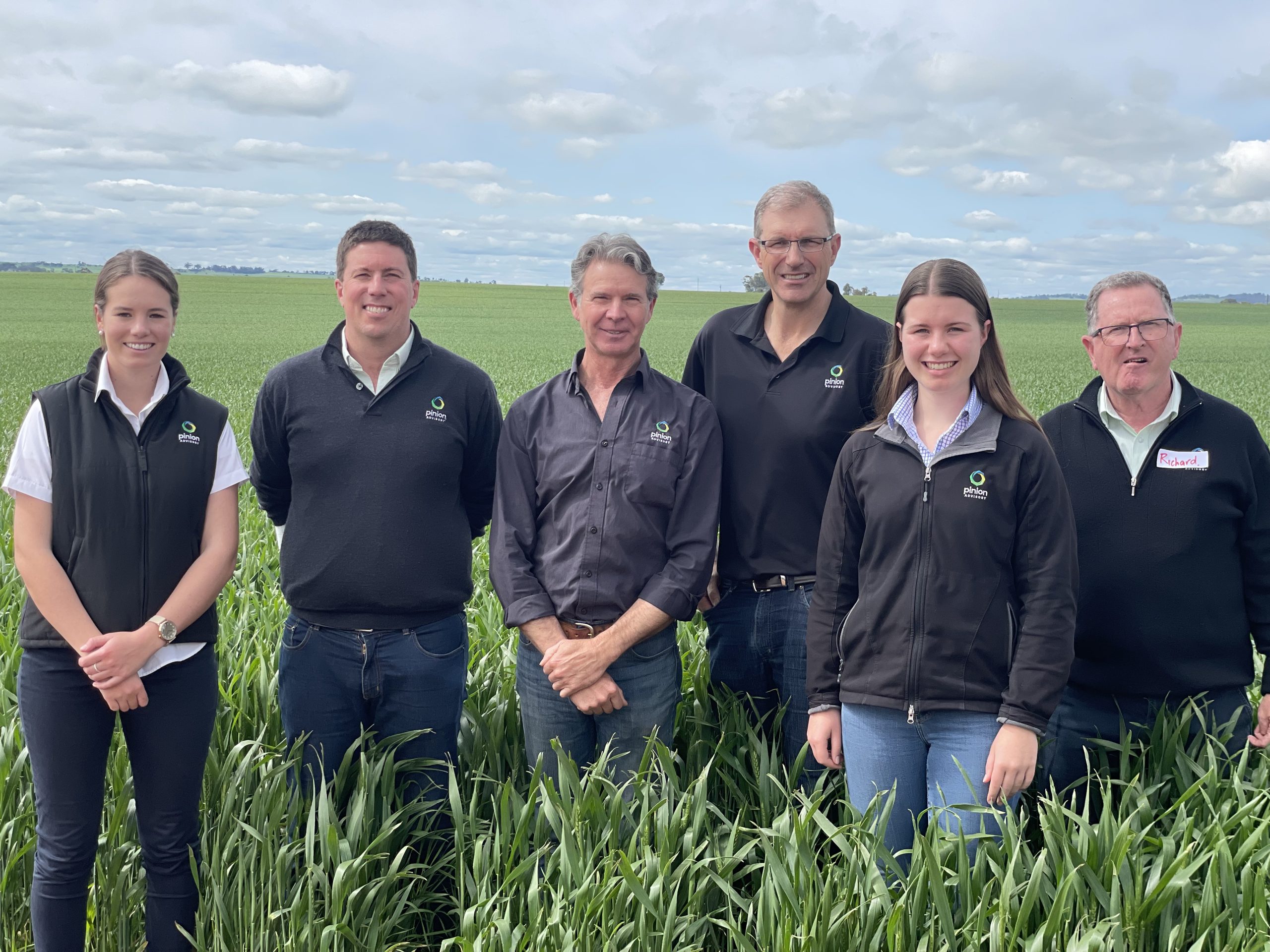
In recent times, these challenges have been exacerbated and felt more broadly across all industries, with low unemployment rates, fewer backpackers and migrants coming in due to border closures, staff shortages due to COVID implications, etc. The cost-of-living pressure has added further pressure to the situation; salary is particularly important and people are prepared to leave a workplace for more money.
So how can we keep the employees we already have? And then how do we attract (and retain) more high-quality employees?
The term 'employer of choice' has been used extensively over the past decade, with many organisations now claiming to be one. But are they? We can’t all be the best.
The new approach is employee value proposition. What does your workplace do to make it something people want to be part of? It isn’t just salary. There are many things a business or organisation can do, regardless of its size, to make the workplace more appealing and rewarding for its employees - and develop a reputation for it.
This is something Pinion Advisory has also been doing recently – updating and building on our employee value proposition. As part of this process, we have asked employees what they like about working at Pinion Advisory. The votes are in and the things that matter most to staff are the people, culture, flexibility and career opportunities. And our team are really passionate about it!
So… what does your workplace do to attract and retain great staff? How do you communicate this to potential employees? Or even existing ones so they understand the true value of their workplace and remuneration package? Are there some simple things you could do to make your employee value proposition stronger or more competitive?
Pinion Advisory’s people and succession consultant, Bron Stedall, suggests “employers often underestimate the importance that staff place on feeling valued. The way they are treated by management and the friendships they form with colleagues, is often what differentiates motivated employees from those who disengaged. Therefore, get creative with ways to show you care, e.g., sponsor a school or club their kids play for, introduce a weekly “shoutout to”, where staff can voice their appreciation for support received, or provide onsite or online access to workshops, where expert advice is provided on various topics from mental health to financial planning, etc.”
If you are thinking “where do we start?”, the answer could be contacting Pinion Advisory’s people and succession team. We offer one on one support to businesses, as well as training packages to upskill your management team. Workshops already scheduled for 2023 are up on our website.
For more information, contact Carlyn Sherriff or Bron Stedall from the Pinion Advisory people and succession team on 1300 746 466 or email admin@pinionadvisory.com.
Farm business service group meeting
In September, over 30 of our Farm Business Services consultants got together for a team meeting. Hosted at the Barns of Freeling, this was the team’s first face-to-face get together since Pinion Advisory’s inception.
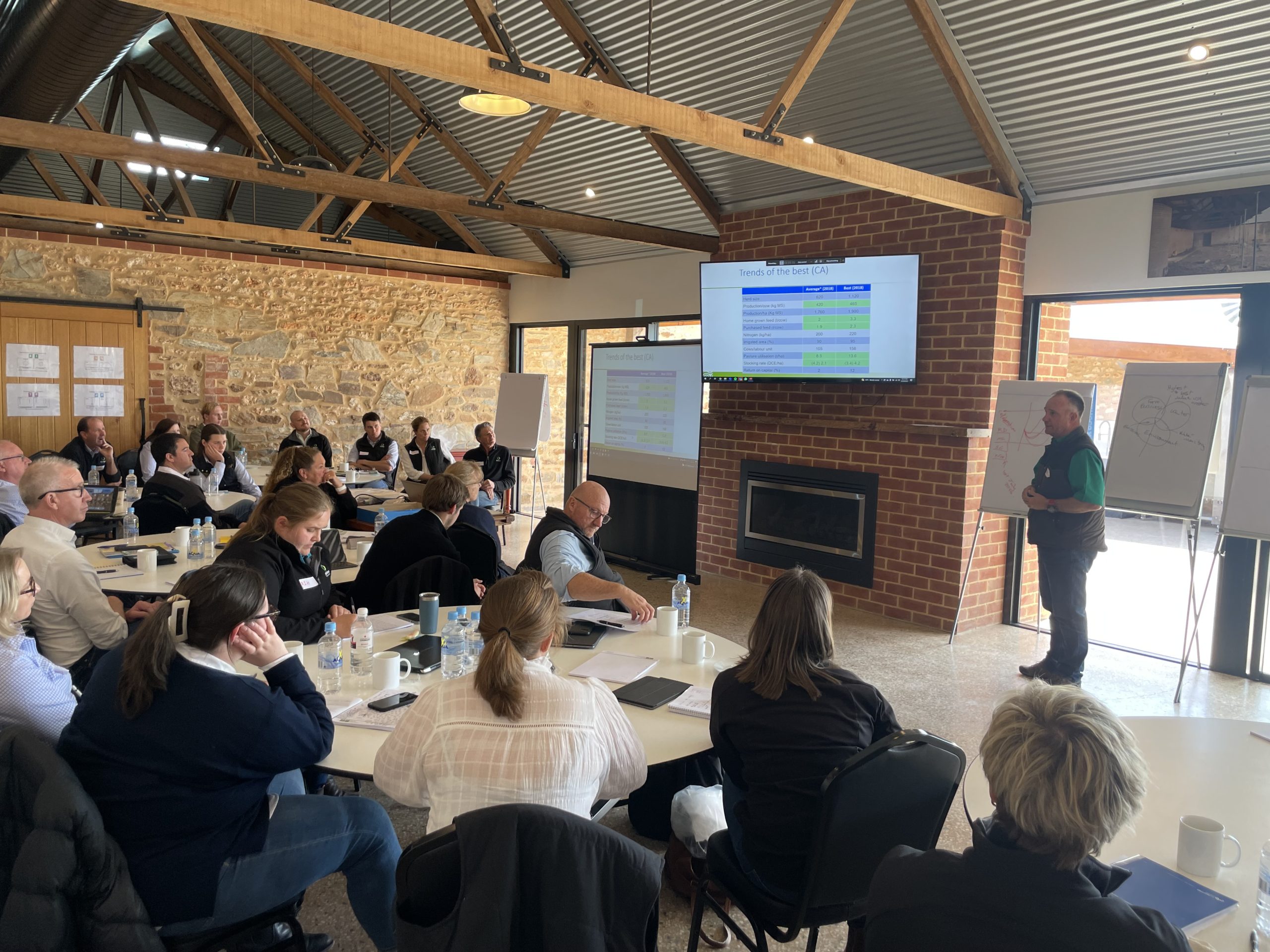
The Farm Business Services Group comprises of consultants operating in the sub-teams: Food & Ag Production, Pinion Centre for Family Agribusiness and Commodity Risk Management. Given our spread across the country, catching up face to face is a rare but invaluable experience. It also provided perfect timing to welcome new team members, as well as finally meeting existing colleagues in person after so many travel restrictions!
Highlights from the meeting included:
- An update on the Pinion Advisory Strategic Plan; and how it impacts our roles in the Farm Business Team. As agribusiness consultants, we often facilitate a strategic planning process with farming clients. These sessions are always highly valuable as they get all business members on the same page, moving towards a common goal. There was no exception for our own strategic planning session. We brainstormed and made plans to ensure we are consistently delivering ‘client first’ outcomes around profitability, sustainability and growth.
- A deep dive into the fundamental components of farm business consulting: Benchmarking & Financial Analysis. Basil Doonan ran a great session on Marginal Cost/Marginal Benefit thinking. Basil shared experiences where he’s helped clients through simple decisions to create big financial outcomes. Simon Vogt ran an excellent discussion on how much impact benchmarking has on a business. Utilising client case studies with some exceptional five year growth, he highlighted the features of their journey, including an advisory board, regular benchmarking and financial analysis.
- Team Collaboration sessions were a clear highlight. Given the significant growth in service areas, we can ‘lose track’ of what everyone is getting up to, and what new services we're delivering. Team Leaders gave updates on their service areas and how clients can benefit from a multitude of offerings. Discussion also covered new service area offerings including: Carbon Consulting Services and a Financial Brokerage Service.
Image: The Farm Business team meeting, hosted at the Barns of Freeling in September.
Interesting times for interest rates
Interest rates, and how high they may go, is a hot topic currently. For lots of farming businesses annual finance costs can be substantial. A question that is quite often asked of me is; can I do anything about this? The answer in the majority of cases is, yes.
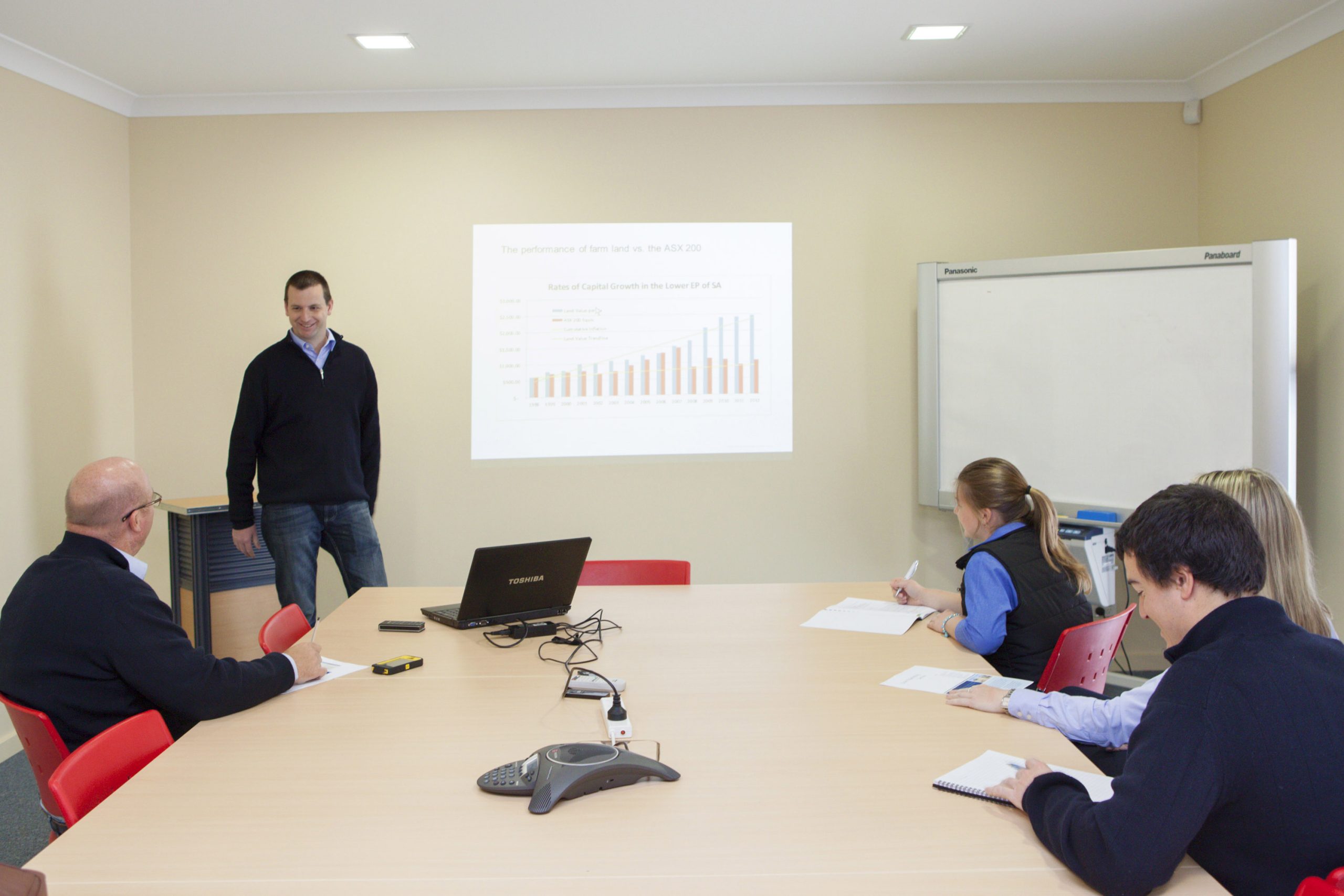
It’s crucial to have the right mix of finance facilities in place. It’s not all about price, although that’s a major consideration. Another factor could be that an agribusiness may need to have enough flexibility to make decisions quickly if required. It’s also a good idea to have a capital expenditure plan that runs over multiple years, given the cost of plant and machinery.
On a micro level, proactive communication with your bank and providing accurate, timely information will always strengthen your case to negotiate a better deal. Also, having a good grasp on forward planning, including a long-term vision for the business and multi-year budgets, will help the cause. Banks also look upon the use of quality external advice favourably.
On a macro level, there are lots of factors influencing the unprecedented rise in interest rates. The main one is the level of inflation in the economy. Hopefully, this has peaked, but time will tell. Raising of interest rates is a blunt instrument to combat inflation, but it’s the main tool the Reserve Bank has to reduce inflation over time. Of course, it’s not a precise science and we all need to hope that the RBA gets the timing right.
Recently I attended a session with one of the big banks about the interest rate market. As we know, we have come off a long run of historically low rates. The view is that the current level of rates will be around for quite some time and may become the new normal. There are differing opinions within economic forecasting teams within the banks, just how high rates will go. In some ways it’s a bit like asking how much rain you are going to get this year, and when is it going to fall. It’s always an estimation or a guess, depending on your view of things.
For farmers this means much higher interest payments well into the future. These need to be managed, and this is where being on top of all aspects of your business will be vital. There are ways to manage interest rates. One of the main ones is to ensure your customer margin is as low as possible. The customer margin is one component of what makes up the interest rate the bank charges you. Other aspects, such as the cost of funds and the cost of doing business for the bank, can’t be controlled by the customer, but how risky the bank perceives your business to be can be managed.
This is where Pinion comes in, as we can assist with this process and help you achieve the best finance outcome for your business. If you would like further information or to discuss your finance needs, please touch base on mbagshaw@pinionadvisory.com, or 0409 793 946.
Agri-enviro lingo: 2022 reflections and predictions for 2023
Last year I attended the Australian Farm Institute’s roundtable on ESG. ESG, now there’s a buzz term. ESG stands for environmental, social and governance, and effectively refers to measurement of investments according to sustainable and ethical parameters. ESG has been born out of a need to satisfy consumer and investor demands to examine business performance on more than just the bottom line. The need to justify environmental, social and governance credentials has seen the term ESG quickly become embedded in agri-enviro lingo. And dare I say, it’s probably up there now with 'unprecedented'!
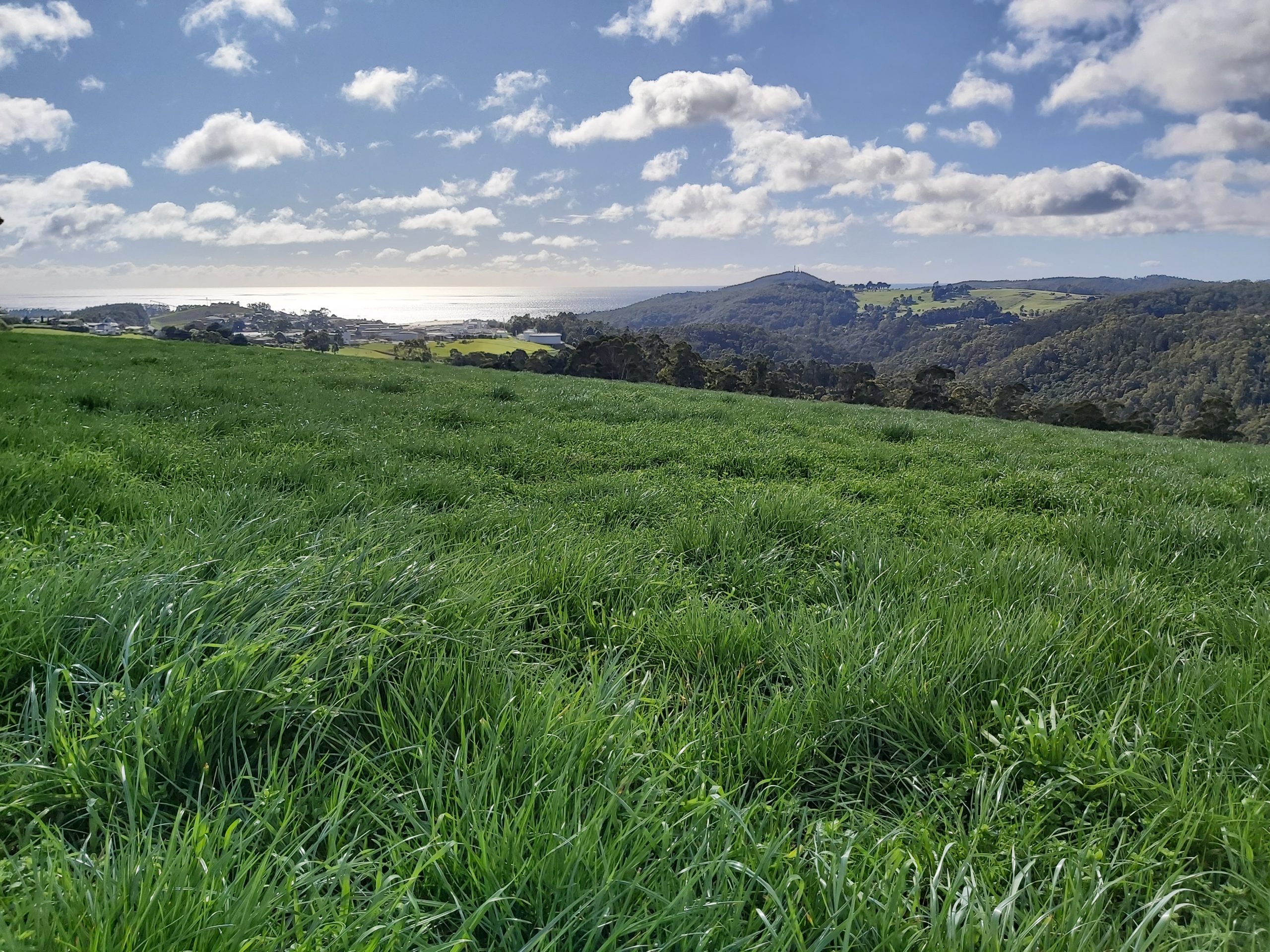
Another of my favourite 2022 trendy agri-lingo finalists is ISCC - international sustainability and carbon certification. ISCC is what you need if you are growing canola and planning to sell it into the European Union market. The ISCC declaration asks growers to sign a statement about their practices in relation to land clearing, biodiversity and farm safety. For those who wish to downplay the importance of such certification, yes, it is just a piece of paper. In fact, it’s a ticket. A ticket that puts you in the draw to be audited as part of spot checks to ensure industry conformance. And if someone doesn’t win, we all stand to lose. Remember 'greenwashing'? That was an agri-lingo finalist from a few years back. Greenwashing is when someone or something falsely claims to be environmentally friendly or have a greater positive environmental impact than they really do. Think back to when Volkswagon cheated on their emissions reduction tests, only to undermine brand credibility and consumer confidence in their product.
By far my favourite agri-lingo trend for 2022 was mega-trend. A mega-trend is described as something that is so powerful as a trend, that it shifts future direction. Each megatrend occurs at the intersection of multiple more specific trends and patterns of change – including geopolitical, economic, environmental, social or technological trends (ABARES website).
I read about mega-trends in agriculture in early 2022, and I’m a believer that Australian agriculture is in the midst of a mega-trend. There is a convergence occurring in the increasing market persistence to demand environmental integrity and, importantly, Australian agriculture is responding to this.
Important pieces of multidisciplined research work, such as that being undertaken through the Farming for the Future project, is preparing Australian agriculture to articulate our environmental story alongside our well documented and demonstrated production story. We need to build and keep the trust we have spent decades developing. Otherwise we could end up in the same greenwashing basket as Volkswagon.
So, on the podium for the 2022 agri-enviro lingo, we have the gold medal going to ESG, silver to ISCC and bronze to mega-trends.
So, what will 2023 have in store for us? My prediction is that we will hear a lot about natural capital accounting, insetting and the Chubb review into carbon trading. Further, these mega-trends will still be trending. Stay tuned!
Sarah Barrett is a senior consultant specialising in sustainability strategy at Pinion Advisory. If you would like to look at opportunities to get your business on the front foot with ESG, carbon or climate change, contact Sarah on 0477 985 854.
MLA MeatUp Forum at Wudinna – register now!
Natasha Searle (email) and Dee Heinjus (email)
An important part of the Pinion Advisory portfolio of work is in industry development, extension and adoption. An example of this is the MeatUp Forum project, an initiative of Meat & Livestock Australia, delivered by Pinion Advisory. There have been twelve MeatUp Forums in the last two years across southern Australia.
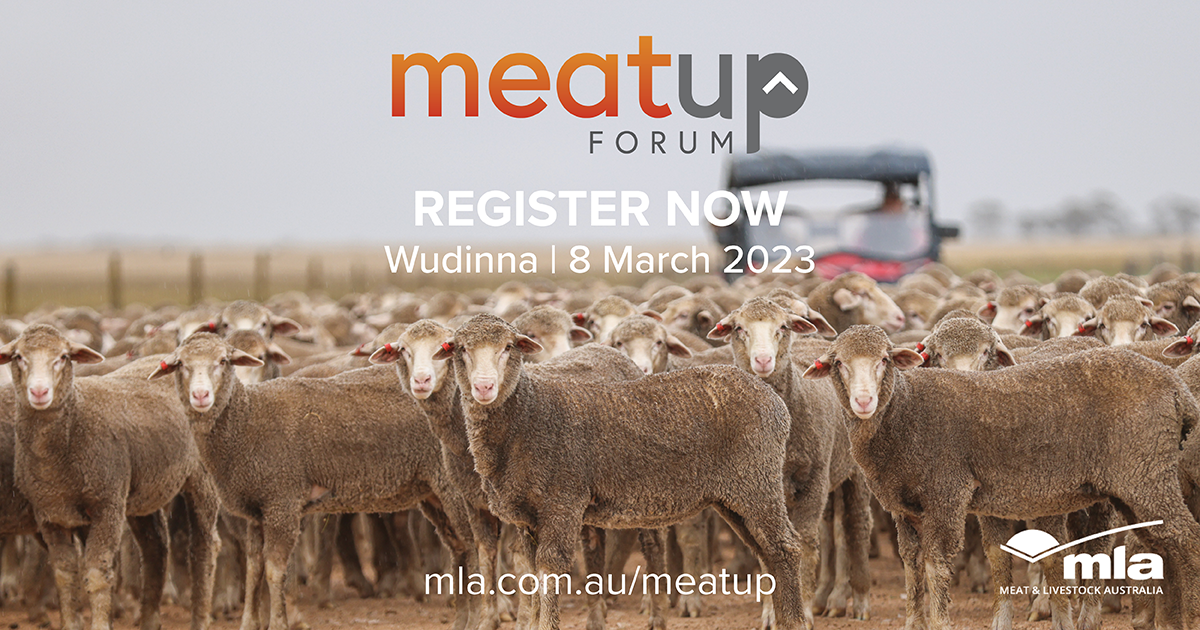
On Wednesday 8 March 2023, an MLA MeatUp Forum will be held in Wudinna on Eyre Peninsula focusing on sheep production.
These forums are designed for red meat producers to hear about the latest on-farm research and technologies and the programs that support adoption on their farms. Highlights of the Wudinna program include:
- Hear from John Francis, Agrista, on getting the most from your mixed farming system. Understand the biases that influence decision making, and how that can be applied to capitalise on opportunities for the livestock enterprise.
- Explore the integration of livestock with cropping in a variable Eyre Peninsula environment, from a business and risk management perspective, with James Hillcoat, Pinion Advisory. Craig Kelsh, ‘Venus Plains’, Witera will also provide insights on implementation from a producer’s perspective.
- Hear about carbon neutrality and what practical steps Eyre Peninsula producers can take from Cam Nicholson, Nicon Rural Services.
- Hear from Alastair Rayner from Rayner Ag about the newly released Australian Feedbase Monitor and how you can use it to help with grazing management decisions.
- Gain insights on getting started with, and smart implementation of eID, with local Wudinna producer, Chris Lymn.
- Hear an update from Sarah Strachan, MLA Group Manager Adoption and Commercialisation, about red meat market trends and MLA’s adoption program highlights.
- Go on a virtual farm tour of sheep and cropping operation, Goldmine Hill Farms, Lock. Hear and see how Kerran ‘Gus’ Glover manages his sheep operation using a medic pasture feedbase, mixed forage species for grazing, containment feeding and a feedlot, and the benefits for his family business.
- Catch up with fellow producers, speakers and industry representatives throughout the day, identify next step opportunities for you and your business, and wrap up a day of learning with networking drinks.
There will be several Pinion Advisory consultants in attendance in addition to those coordinating the day. Take the opportunity to come along and catch up. It’d be great to see a strong contingent of Pinion Advisory clients attending.
An overview of all sessions and speakers is available online at mla.com.au/meatup.
To register, click here.
For more on MeatUp Forums visit mla.com.au/meatup. In addition to Wudinna, MeatUp Forums are planned for the following locations in 2023:
- Albany, WA – 28/3/23
- Bourke, NSW – 28/6/23
- Tamworth, NSW – July 2023
- Cowra, NSW – August 2023
If you would like more information contact Natasha Searle, Project Manager and MeatUp SA Event Coordinator, Pinion Advisory, email meatup@pinionadvisory.com or phone 1300 746 466.
Grain cost of production and the linkage to marketing
Growers are well versed in talking about cost of production and how we influence that over a long-term period. How could an understanding of in-season cost of production, though, help alleviate seller paralysis, as well as giving clarity over what was happening in the paddock and a firm handle on expected cashflows in the bank?

I personally saw major advantages in using a simple, yet effective, cost of production tool for in-season decision making and planning. With the season in many areas of Australia getting bigger and bigger, it has highlighted major flaws in set-and-forget budgeting, as well as a set-and-forget grain sales position. In one case a cost of production indicator, done at multiple times of the year, indicated many hundreds of tonnes difference to their grain sales position. The subsequent difference at the income level was also many hundreds of thousands of dollars more than what they were budgeting. This was not an isolated occurrence either. Knowing this became power for the client. Moods changed and decisions became pragmatic and decisive, and emotions calmed, particularly around cost of inputs.
Getting a handle on your in-season cost of production does several things:
- Indicates truer levels of expected income (when done periodically)
- Indicates levels of tonnage expected
- Alleviates pressure over sales decisions in an extremely volatile marketing environment.
Getting a handle on profit points for commodities you grow and lining that up with a year-round sales strategy is still the most effective way to capture price points on your terms in this market. It also assists with ensuring you don’t sit on large levels of unpriced inventory that is heavily exposed to market risk. Converting inventory to cash in the bank at a profitable price is the end result of all your endeavours. Where we have larger seasons, making informed decisions on that inventory is driven through knowledge of an accurate grain sales position and a good handle on how much profit we can sell it at. This can be achieved with in-season cost of production knowledge and a solid view of market outlooks.
Commodity Risk Management consultants have a strong handle on this linkage to business goals, situation and how that relates to marketing strategies. To learn more about how we help clients go to: https://www.pinionadvisory.com/services/commodity-risk-management/
Pinion Advisory training and salary survey
See what training opportunities we have on for 2023 and check out the latest version of the farm salary survey report. The report provides data on 100 farm positions and is a great way to benchmark your wages.
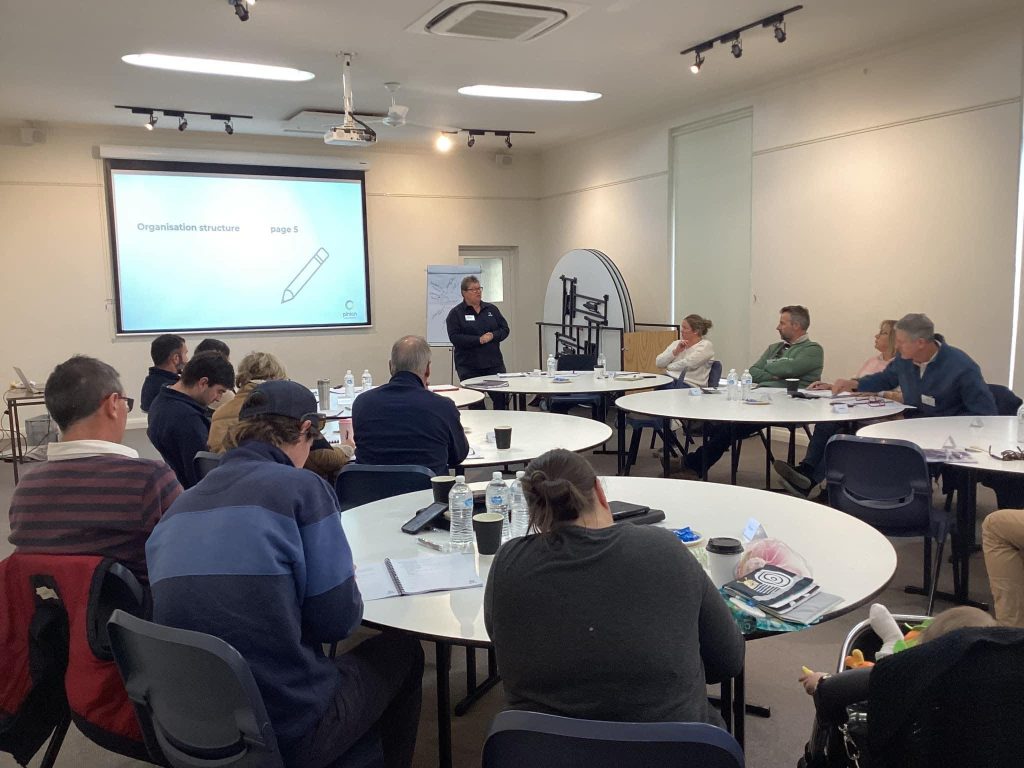
Training dates for 2023
| Farm HR: Creating employers of choice
From 23 January 2023 & 2 February 2023 |
Delivered as 3 fortnightly online sessions. Answer common questions:
|
| Leading people for performance and profit
From 1 February 2023 |
Delivered as 3 weekly online sessions. For those:
|
| MeatUp Wudinna SA
www.mla.com.au/meatup 8 March 2023 |
Save the date for a Meat & Livestock Australia MeatUp Forum. For the latest in red meat R&D, register your interest here. |
| Next Gen Breakthrough
21 & 22 March 2023 |
Kick-off this three year program with the first two day workshop in March 2023. |
Salary survey results now available
Check out the latest version of the farm salary survey report. The report provides data on 100 farm positions and is a great way to benchmark your wages.
You will gain insights into farm labour trends, which will help you to attract and retain key team members who add value to your business.
Grab a copy today to review the results.
Snapshot of the results:
- 97 farm roles were reviewed for the 21/22 financial year.
- Data was collected from South Australia, Tasmania, New South Wales and Victoria.
- For operational full-time employees, the average ordinary base rate per hour (i.e. for 38 ordinary hours per week or higher if agreed) ranged from $26.63 to $43.31 per hour.
- A variety of wage structures for operational full-time employees were used. Most common, at 32%, was paying a fixed hourly rate for every hour worked.
- 85% of managers and 60% of assistant managers are paid via an annual amount/salary.
- 50% of experienced farm assistants are paid hourly at the same rate, for example $32 per hour.
- Benefits were supplied to both full-time and casual employees. In order of commonality was training, a vehicle, housing, phone, rations, utilities, a bonus, cash or goods and fuel.